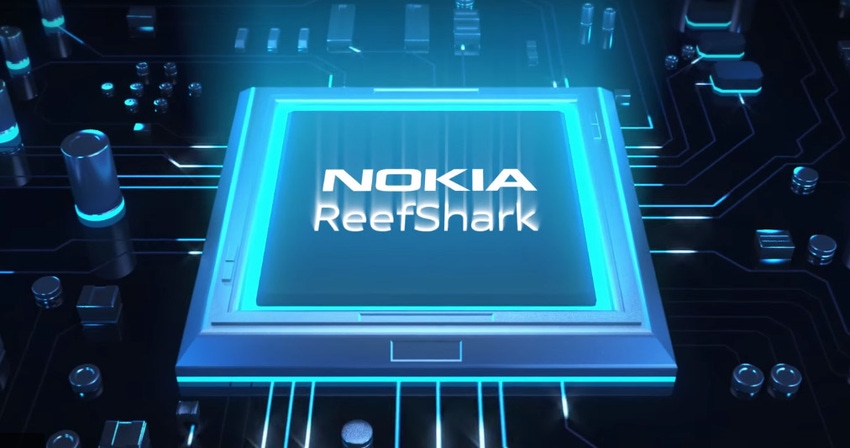Networking vendor Nokia seems to have concluded silicon design isn’t as much of an in-house strength as it had hoped.
March 5, 2020

Networking vendor Nokia seems to have concluded silicon design isn’t as much of an in-house strength as it had hoped.
What a difference two years makes. At the start of 2018 Nokia was crowing about its unique processor skills, as manifested in its shiny new ReefShark chipset, and what a differentiator they would turn out to be. By the middle of last year, however, Nokia was forced to admit that things weren’t going according to plan, thanks largely to some strategic missteps concerning 5G.
One of the miscalculations seems to have been going big big on field-programmable gate array (FPGA) chips. These seemed like a good idea because, as the name implies, they could be reconfigured and optimised by the customer after purchase and installation, thus giving service providers the kind of flexibility they need for the 5G era. But all this agility comes at a price, which it looks like not everyone was prepared to pay.
So this week saw a couple of announcements from Nokia concerning partnerships with chip specialists. The first was with Marvell, which Nokia is now working with on a bunch of 5G chips, including improvements to its ReefShark ones. The minutiae of the partnership are not revealed, but Marvell’s thing is chips based on Arm’s microarchitecture, which are ubiquitous in the mobile world because they’re relatively power efficient.
Relative to Intel, that is, which has an almost comical history of trying and failing to introduce its significantly hotter and more power hungry x86 architecture-based chips into the mobile space. So it came as a bit of a surprise to see that Nokia is also enlisting Intel’s help with its silicon efforts. Then again, some of that collaboration is on the server side, where Intel and x86 remain preeminent, so that’s understandable, but we’re told Intel is getting involved in ReefShark too.
There was lots of talk about ‘custom silicon solutions’, which could mean more of a collaboration on the manufacturing side. That would make sense as Intel is apparently a Nokia chip manufacturing partner and its recent missteps have been a contributing factor to Nokia’s challenges. But they are also collaborating on chip design, with the Atom (yes, that brand still exists) P5900 processor cropping up in some Nokia gear.
Of the Marvell partnership, Tommi Uitto, President of Mobile Networks at Nokia, said: “This important announcement highlights our continued commitment to expanding the variety and utilization of ReefShark chipsets in our portfolio. This ensures that our 5G solutions are equipped to deliver best-in-class performance to our customers. As service providers continue to evolve their 5G plans and support growing traffic and new vertical services, the infrastructure and components must evolve rapidly. Adopting the latest advancements in silicon technology is a critical step to better serve our customers’ needs.”
Of Intel Uitto said: “This partnership highlights our continued commitment to ensuring our 5G portfolio is underpinned by best-in-class technology. 5G networks need to support billions of devices and machines, and this massive increase in volume and scale means that existing infrastructure and components must evolve rapidly, adopting technologies and techniques to enable to deploy 5G networks quickly.”
All this seems to amount to a move away from the FPGA strategy and the Intel announcement refers specifically to ASICs (application-specific integrated circuits). That’s probably the right decision, but it still represents a significant strategic climb-down by Nokia. Having spent years boasting about its in-house silicon competence, it’s now having to call in help externally to get its chip strategy back on track.
About the Author(s)
You May Also Like








.png?width=300&auto=webp&quality=80&disable=upscale)


_1.jpg?width=300&auto=webp&quality=80&disable=upscale)


.png?width=800&auto=webp&quality=80&disable=upscale)